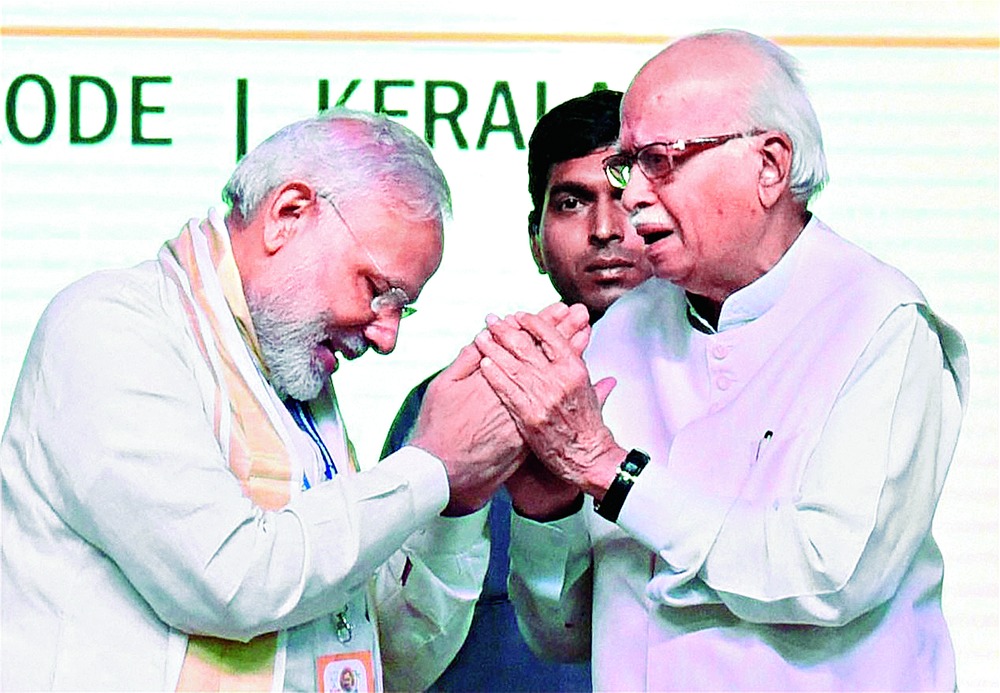
Kozhikode, Sept. 25: The BJP stamped a shift to the politics of "povertarianism" in a political resolution adopted by the national council today.
Called the "Pandit Deendayal Upadhyaya Birth Centenary Year Resolution", its opening line stated that the BJP would celebrate 2016-17 as the "year of the welfare of the downtrodden" across India.
The party also resolved to "tread the path shown by Pandit Deendayal Upadhyaya and work towards realising the dream of a developed and just India where even the poorest of the poor would be taken care of".
The resolution went on to say: "The party believes that in order to realise the objective of national reconstruction, the important primary goal should be to eliminate economic inequality, discrimination and disparities."
Sections of the BJP felt a tad discomfited by the embrace of "povertarianism" and wondered how the agenda would reconcile the party's recognition of the emergence of an "aspirational" and socially and economically mobile class in urban and rural India.
Prime Minister Narendra Modi was the first political leader to recognise the shift from poverty to aspiration.
As Gujarat chief minister, his last election manifesto in the 2012 elections had enshrined the aspirational section of youths as representing the "neo middle class" and said their dreams and ambitions must be fulfilled.
Privately, some in the BJP had derided the UPA government for going big on welfarism through the National Advisory Council helmed by Sonia Gandhi and had wondered how Manmohan Singh, the author of the economic reforms, could embrace the new buzz words.
Gujarat BJP sources said Modi's outlook on economics was not "cut-and-dried". "He is not wedded to an 'ism'," a Gujarat MP said. "If you study his record as chief minister, he did not allow a single PSU, however sick it was, to be shut down. In fact, he went out of the way to revive some of them and turn them into profit-making concerns. He was committed to Dalit and tribal empowerment schemes. On the other hand, he never resorted to populism. No promise of freebies. If anything, he made the farmers clear their power tariff dues and hiked the rural power rates."
There is also a political context to the BJP's emphasis on the "welfare of the poor".
Soon after Modi became Prime Minister, Congress leader Rahul Gandhi had labelled the government a " suit-boot sarkar", a tag that stuck on it through the Delhi and Bihar polls. "Modiji had to discard it and the only way to do it was by talking of the poor and launching schemes for them," a source said.
The Delhi and Bihar elections demonstrated that the poor were mostly out of the BJP's reach still, although sections of the poor had voted for Modi in the Lok Sabha election. "If not the Congress, the poor vote a third party like the Aam Aadmi Party or the RJD or the BSP but the BJP is never their first choice. We have to breach this frontier before the next Lok Sabha poll or risk losing seats," a source said.
Asked if the "pro-poor" thrust would impact the government's push for economic reforms, a source said "no".
"Welfarism and reforms are inextricably tied. We have to go full steam ahead with reforms and secure investments in order to underwrite the ambitious welfare schemes in the pipeline. The effect is top-down. Facilitate the creation of wealth, foster its spread across regions and classes so that more jobs are created and small and medium enterprises get a leg-up," the source claimed.










